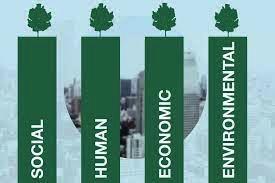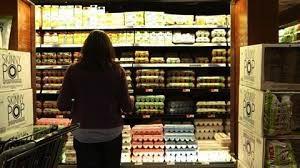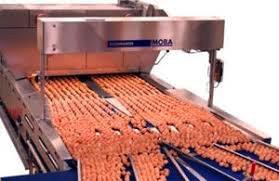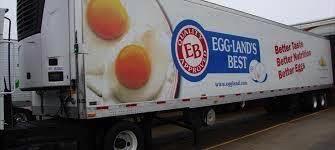The report on sustainability in food retailing produced by the Coca-Cola Retailing Research Council of North America was reviewed at the Executive Conference of the National Grocers Association on September 18th. This report stressed the extent of consumer concern over aspects of sustainability in relation to product packaging, processing and the role of participants in the food chain from production through to retail.
Sustainability means different things to diverse demographics. In essence sustainability as a concept represents the satisfaction of needs without damage to the environment and with special concern for future generations.
 Sustainability incorporates social, human, economic and environmental components representing ‘Four Pillars’ that are in effectively interrelated in production.
Sustainability incorporates social, human, economic and environmental components representing ‘Four Pillars’ that are in effectively interrelated in production.
- Human sustainability concerns health, education, providing services and the development of skills for the wellbeing of communities.
- Social sustainability relates to maintaining services and balance within communities including the rule of law and dissemination of accurate information.
- Economic sustainability is necessary to preserve capital and contribute to an acceptable standard of living. Businesses must apply assets to generate profit over the long-term.
- Environmental sustainability protects land, air, water and other resources. Both enterprises and individuals can either contribute to environmental degradation or through specific actions they can reduce wastage, conserve water, lower greenhouse gas emissions and prevent pollution through appropriate disposal of packaging and unwanted items.
In the context of a business concern, it is necessary to integrate the four pillars of sustainability with appropriate compromises and trade-offs to achieve an optimal outcome.
 The sustainability and food retailing study demonstrated that sixty percent of consumers believe supermarkets and retailers should cooperate with their local communities to advance sustainability. The study indicated that most consumers would be willing to pay marginally more for food items and would preferentially patronize stores that demonstrate positive polices contributing to sustainability.
The sustainability and food retailing study demonstrated that sixty percent of consumers believe supermarkets and retailers should cooperate with their local communities to advance sustainability. The study indicated that most consumers would be willing to pay marginally more for food items and would preferentially patronize stores that demonstrate positive polices contributing to sustainability.
Examples of sustainability in the egg industry that exemplify the four pillars include:
- Evidence that workers are well remunerated and are protected against of COVID.
- Consumers need to be assured that eggs are produced in a sustainable manner. This will be the responsibility of the Roundtable on Sustainable Poultry and Egg Production to develop quantitative levels of greenhouse gas emission, land and water use per unit of production as incorporated in a comprehensive life cycle assessment. The broiler industry has already completed their evaluation and a corresponding egg study will be forthcoming.
 In the context of egg production, packaging constitutes the most important aspect of concern for environmentally conscious consumers. It is apparent that fiber is regarded as biodegradable as opposed to polystyrene foam and PET. If polystyrene is used, in-store collection of empty containers is considered essential to obviate the negative impression that packaging remains on waste dumps in perpetuity or is destined for an ocean gyre.
In the context of egg production, packaging constitutes the most important aspect of concern for environmentally conscious consumers. It is apparent that fiber is regarded as biodegradable as opposed to polystyrene foam and PET. If polystyrene is used, in-store collection of empty containers is considered essential to obviate the negative impression that packaging remains on waste dumps in perpetuity or is destined for an ocean gyre.
Consumers indicate that they favor biodegradable bags for produce and are requesting a range of product sizes to prevent waste.
The concept of ‘local’ production is favored by consumers. From the standpoint of sustainability remote but concentrated central cultivation of produce or production of protein, including eggs may require fewer resources than inefficient small-scale production and packaging. In terms of USDA labeling, ‘local’ can extend over 400 miles.
With a greater emphasis on climate change policy and attendant publicity following a change in Administration, consumers, especially those under thirty years of age are concerned over environmental issues. Recent climatic events including hurricanes, wild fires, flooding and polar vortices have increased awareness of the impact of energy generation from fossil fuels on the environment.
 The egg industry is fortunate in that feed conversion is favorable and that conservation of water, power and energy contribute to a small environmental footprint for the product, compared to other animal protein sources. The challenge for the egg industry will be to develop and confirm quantitative data relating to sustainability and then to spread the message to consumers. If opponents of intensive livestock production can use social media to deprecate intensive production then with commensurate effort it will be possible for the industry to present a more positive picture. The activities at the American Egg Board with respect to social media are commendable and obviously will have to be expanded.
The egg industry is fortunate in that feed conversion is favorable and that conservation of water, power and energy contribute to a small environmental footprint for the product, compared to other animal protein sources. The challenge for the egg industry will be to develop and confirm quantitative data relating to sustainability and then to spread the message to consumers. If opponents of intensive livestock production can use social media to deprecate intensive production then with commensurate effort it will be possible for the industry to present a more positive picture. The activities at the American Egg Board with respect to social media are commendable and obviously will have to be expanded.
Those who oppose our industry are losing welfare as an issue with progression in the transition to cage-free housing. Salmonella as a secondary talking point is now of minimal importance since there has not been a SE outbreak attributed to eggs from a commercial complex since 2010.
The creation of the Roundtable, changes in packaging and inherent efficiency in conversion of resources to food place egg production in a favorable position with regard to sustainability. We can be justifiably proud of our achievements but must build on this foundation with both innovation and enhanced messaging.